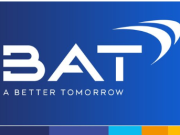
A notification and vigilance service for e-cigarette producers
The creation of a notification and vigilance service for e-cigarette producers is one of the requirements of the revised EU TPD to be implemented on May 20, 2016. The notification and vigilance service concerns e-cigarette products already on, or proposed for, the UK market.
MHRA is designated for leading this activity
The British Medicines and Healthcare products Regulatory Agency (MHRA) is the governmental body that is designated for leading this activity but it also means that the Agency will be facing additional expenses. Under the terms of its status as a Government Trading Fund, MHRA has to recover in full the costs of its regulatory activities by charging fees for its services.
MHRA might be charging fees for its services
In order to cover the cost of administering notifications for the placing on the UK Market of e-cigarettes that are classified as consumer products and covered by the revised Tobacco Products Directive, MHRA proposes to ask producers of e-cigarettes to pay a fee. This fee would be set at a best estimate of full cost recovery +3.5%, as required by the Managing Public Money rules, and re-evaluated after one year. MHRA adds that this impact assessment only considers the necessity of ensuring full cost recovery.
The services provided to e-cigarette producers by MHRA to recover its costs has been estimated as between an average of £0.15- £0.35M per year, with a best estimate of around £0.23M. The fact is that MHRA will not be able to recover its full costs unless it introduces a new fee for this service.
A consultation aiming at seeking the views of stakeholders, e-cigarette producers, sellers, online sellers and representative associations on proposals to introduce proportionate fees has been published on January 5, 2016 and will remain open until January 29. Due to uncertain volumes, MHRA adds, there is a risk of an accidental surplus or deficit that the Agency would like to anticipate by seeking better data on the likely number of small and micro businesses that will be affected to set the first years fees during consultation to mitigate this risk. MHRA also seeks further information on the likely impact on small and micro businesses as part of the consultation process.
Consultation questions
- Are the proposed fee levels tolerable, or will they cause a significant impact on your business’s finances?
- Are you a small/micro business?
- Do you have any data or information on the number of notifications and variations MHRA should expect to receive?
MHRA’s best estimates of the cost of running the service are shown below and were run on a 5-year period,
The impact of the policy as a whole on the UK has already been analysed in a previous impact assessment. According to the MHRA, there are two options: Doing nothing or Legislate to enable MHRA to recover the costs of implementing the Directive, in line with Managing Public Money principles and the organisation’s status as a Government Trading Fund.
Viable options?
For MHRA, there is no alternative to regulation, as it must ensure full cost recovery through charging fees for its services. Doing nothing would mean that the e-cigarette notification and vigilance service would need to be subsidised, which is contrary to Managing Public Money principles.
Clear communications campaigns are announced to ensure that all businesses, including the small- and micro-businesses, are aware on what is required and what compliance looks like, thereby minimising familiarisation costs.












